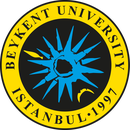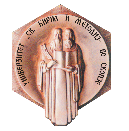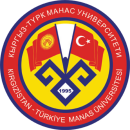
International Conference on Eurasian Economies
1-3 July 2014 – Skopje, MACEDONIA
Paper detail
Paper ID : 1166
Status : Paper published
Language : Turkish
Topic : Macroeconomics
Presenter: Prof. Dr. Ayşen Hiç Gencer
Session : 7D Makroekonomi II
A.Smith and the Classical School, K.Marx and the Marxist Socialism, J.M.Keynes and the Keynesian Revolution and the Subsequent Developments
A.Smith ve Klasik Okul, K.Marx ve Marksist Sosyalizm, J.M.Keynes ve Keynesgil Devrim ve Daha Sonraki Gelişmeler
- Prof. Dr. Ayşen Hiç Gencer (Istanbul Beykent University, Türkiye)
- Prof. Dr. Özlen Hiç (İstanbul University, Türkiye)
Abstract
Adam Smith is known as the founder of economics as a social science and also of economic liberalism (or termed as capitalism after Karl Marx) based on principles of non-intervention and non-protection by the governments to perfectly competitive markets. Over time, economic theory and resulting economic regime evolved: Interventions to improve the welfare of workers; infant-industry argument for limited trade protection; and most importantly, following the 1929 Great Depression, John Maynard Keynes and his macroeconomic system giving rise to less-than-full- employment equilibrium, hence the need for macro-economic level state interventions by means of monetary and fiscal policies. Evidently, liberal economic regime was modified but remained in essence; hence, it proved to be flexible and resilient. On the other hand, Marxist socialism, the doctrinaire challenge to capitalism, had virtually collapsed in the 1990's. The move of even the developing countries towards outward orientation and market economy at the national level is in line with Adam Smith's views; so is the establishment of the European Union and the like at the regional level, as well as the more recent move towards globalisation.
JEL codes: B22, B16, G18
Gencer, Ayşen Hiç, Hiç, Özlen (2014). "A.Smith and the Classical School, K.Marx and the Marxist Socialism, J.M.Keynes and the Keynesian Revolution and the Subsequent Developments" in Proceedings of International Conference of Eurasian Economies 2014, pp.934-943, Skopje, MACEDONIA.
DOI: https://doi.org/10.36880/C05.01166




